Three-Peat Champions
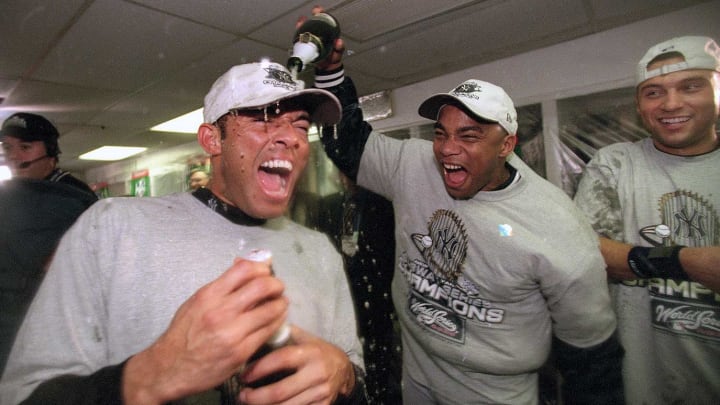
Three-Peat Champions
2002 Los Angeles Lakers
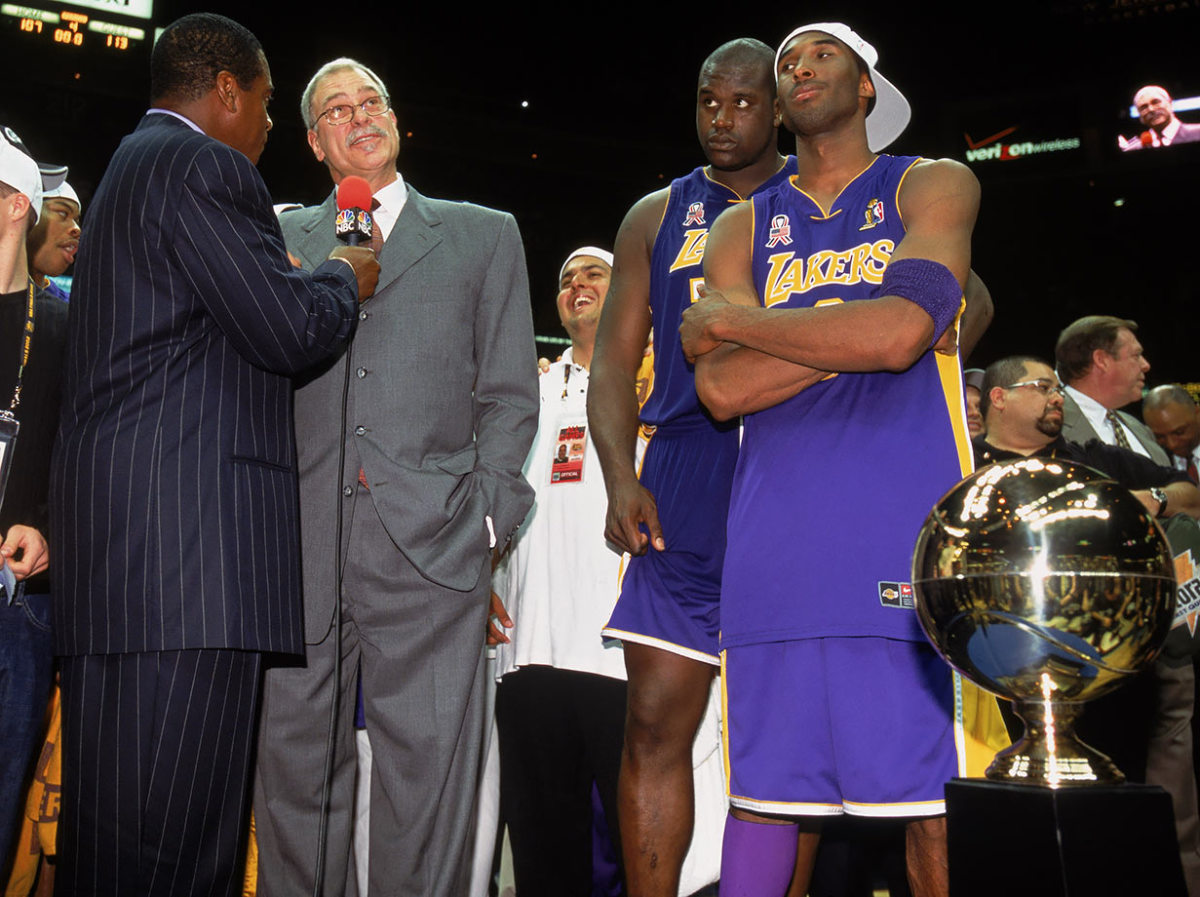
With Shaquille O’Neal earning his third straight Finals MVP award and Phil Jackson tying Red Auerbach for the most NBA titles (9), the Lakers swept the New Jersey Nets in the championship series for the second three-peat in franchise history. In doing so, Shaq and Kobe Bryant did something the Showtime Lakers failed to do—win three consecutive titles.
2000 New York Yankees

In the heyday of the “Core Four,” the 2000 Yanks saw a Subway Series and scoffed at it. Even though they won just 87 games in the regular season, the Yankees lost only one World Series game against the New York Mets, fueled by Derek Jeter’s .409 average and two home runs as well as reliever Mike Stanton’s two wins in 4.1 innings of hitless relief. No MLB team has won back-to-back World Series titles since these Yankees, let alone think of a three-peat.
1999 Houston Comets
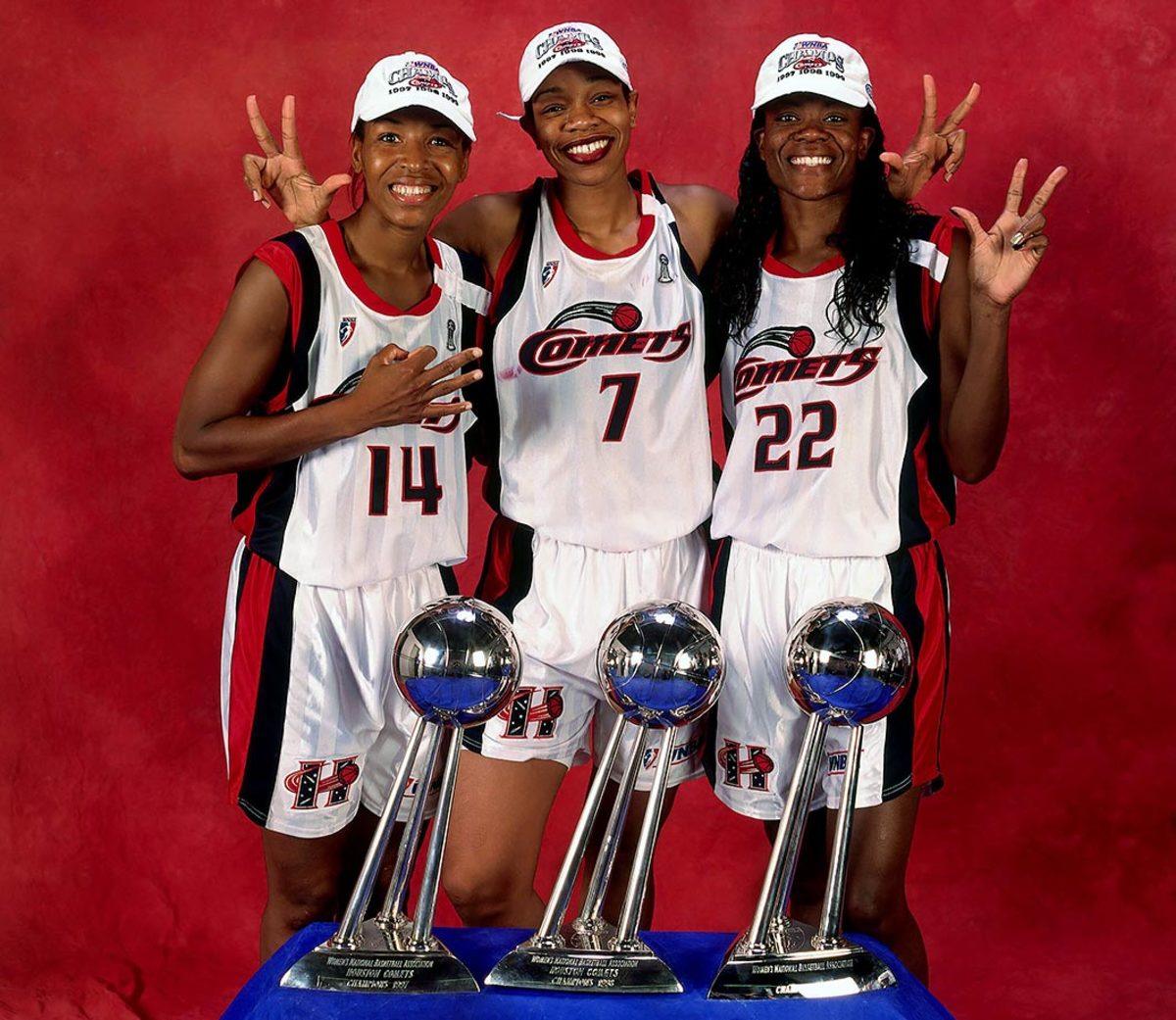
Led by Cynthia Cooper, Sheryl Swoopes and Tina Thompson, the WNBA Houston Comets won the first three championships in the league’s history and would go on to win four in a row. Their streak was stopped by the Los Angeles Sparks.
1998 Chicago Bulls
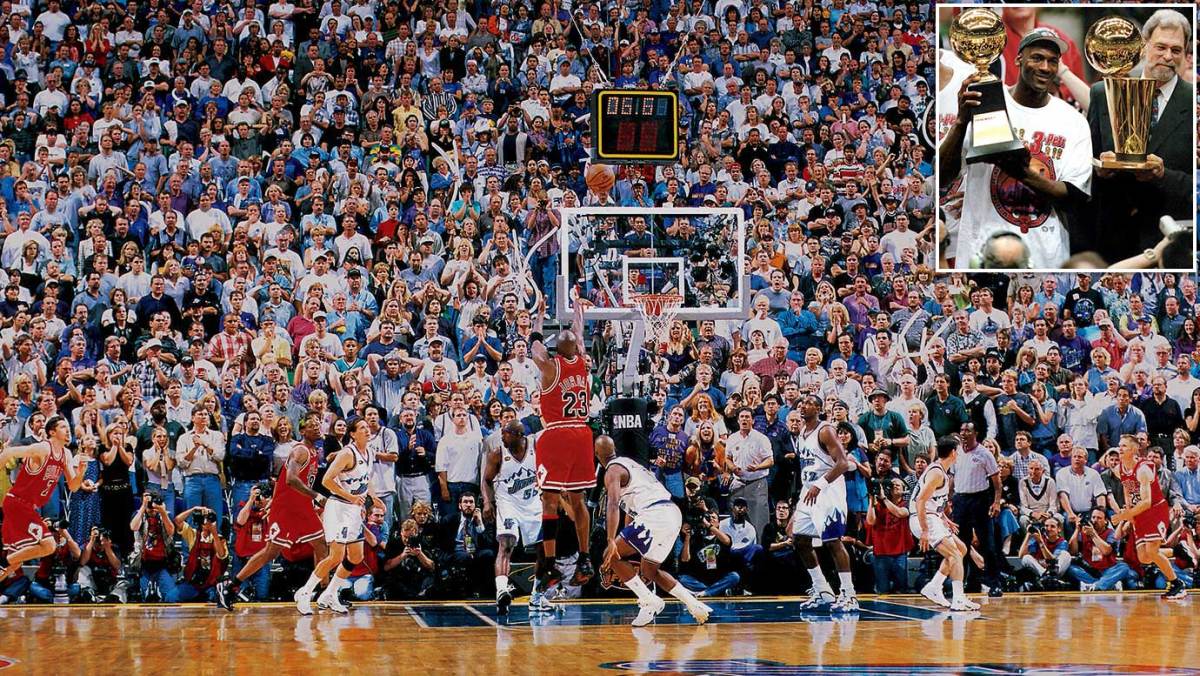
In Michael Jordan’s last game with the Chicago Bulls, the team wrapped up the franchise’s second three-peat by disposing of the Utah Jazz in the Finals, four games to two. The series produced one of the most memorable shots in Jordan’s history, his game-winning jumper over Bryon Russell in the final minute.
1993 Chicago Bulls
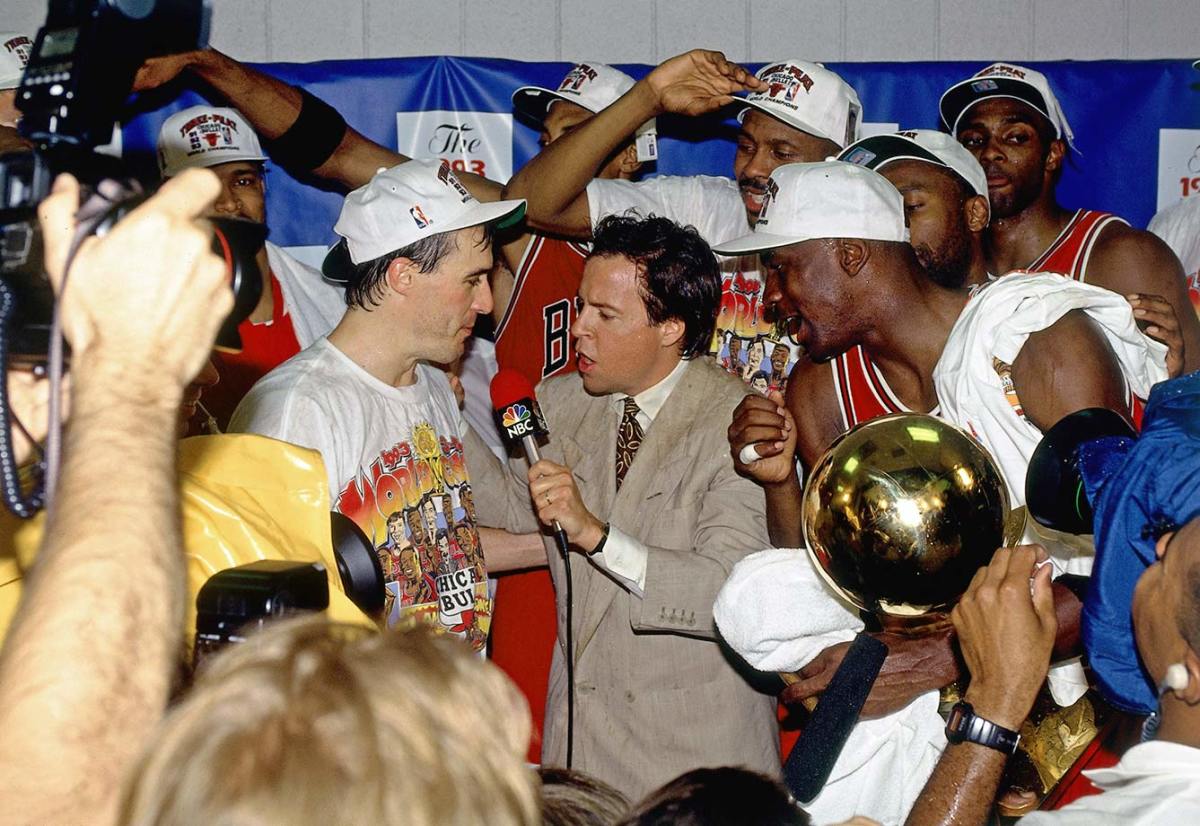
John Paxson’s game-winning three-pointer in Game 6 wrapped up a back-and-forth series against Phoenix and put the three-peat Bulls in the discussion over what is the best team in NBA history. “There are a lot of opinions about who the greatest team is," Jordan said. "You look at the Boston Celtics, who won 16 championships (including eight in a row and 11 in 13 years) and they certainly have to be considered a great team … It's something for a team to win three in a row in this era, when there is so much talent in the league and so much parity. The other teams that won three in a row were in a different era. We feel we should be considered as one of the best teams of all time.”
1982 New York Islanders
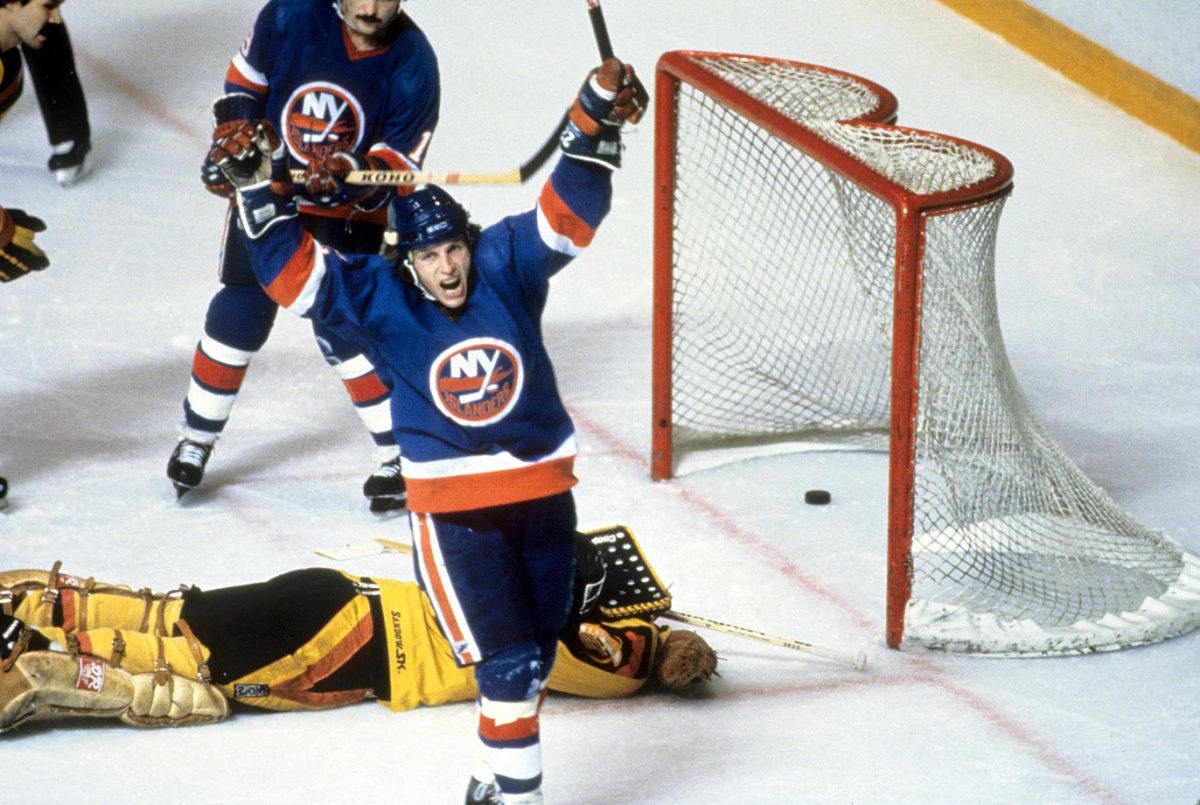
The best team in Islanders history (54-16-10) nearly went down in the best-of-five first round vs. Pittsburgh, but survived with a late two-goal rally that forced OT in the decisive Game 5. After that it was smooth sailing past the rival Rangers in six followed by sweeps of Quebec and Vancouver. The lasting image is of Isles sniper Mike Bossy (17 goals, playoff MVP) scoring while flying through the air after being upended in Game 3 of the Stanley Cup Final. The championship was the third of four in a row for New York.
1978 Montreal Canadiens
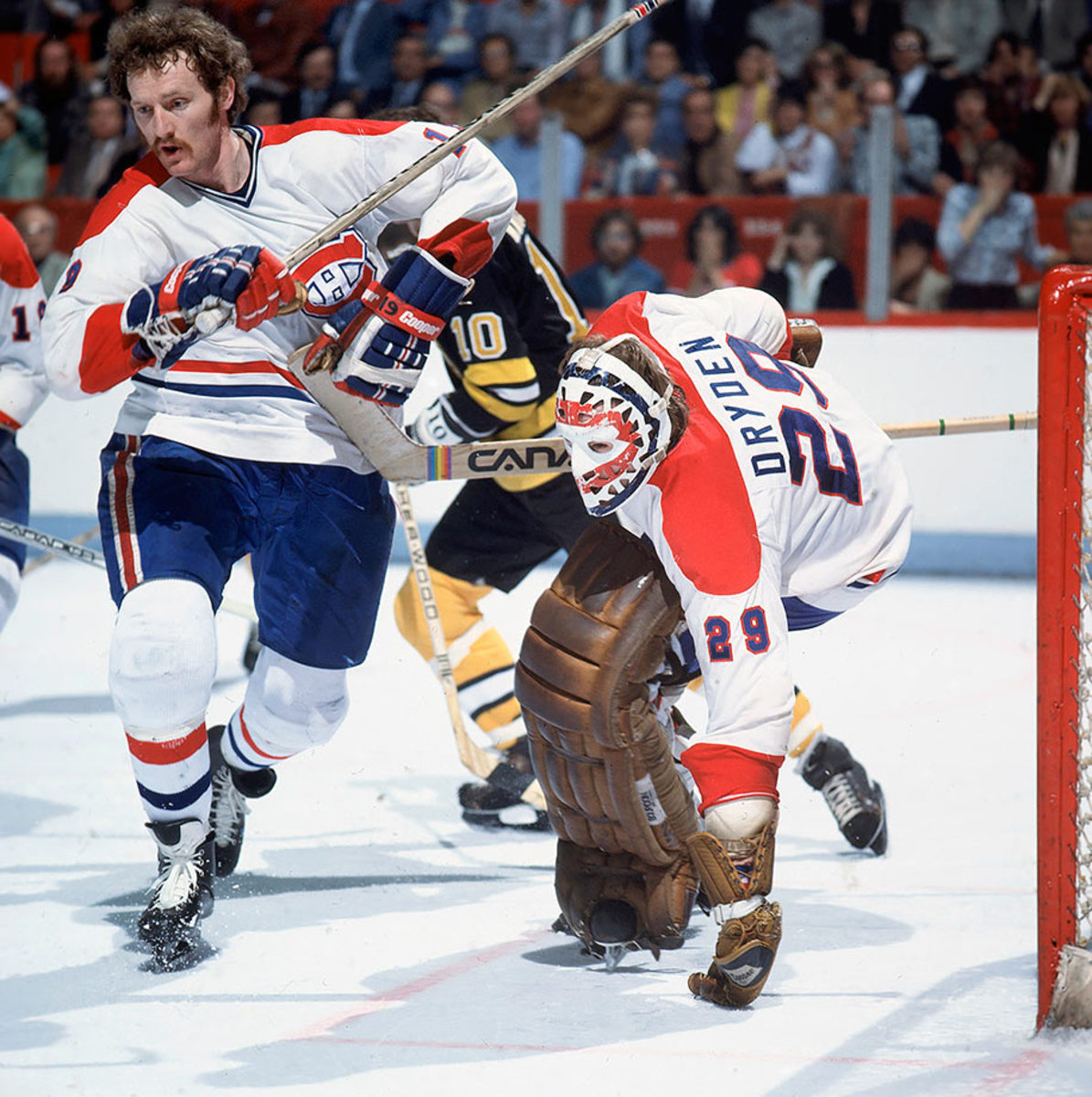
Cruising past the Red Wings in five and sweeping the Maple Leafs, coach Scotty Bowman’s invincible Habs (59-10-11 that season), took on the archrival Bruins, helmed by Don Cherry, in a Cup Final rematch. Though Boston knotted the series at 2-2, Montreal goalie Ken Dryden became a wall as the Habs secured the third of their four straight titles, in six games. Defenseman Larry Robinson, who scored 21 points during the Cup run, won the Conn Smythe Trophy.
1974 Oakland A’s
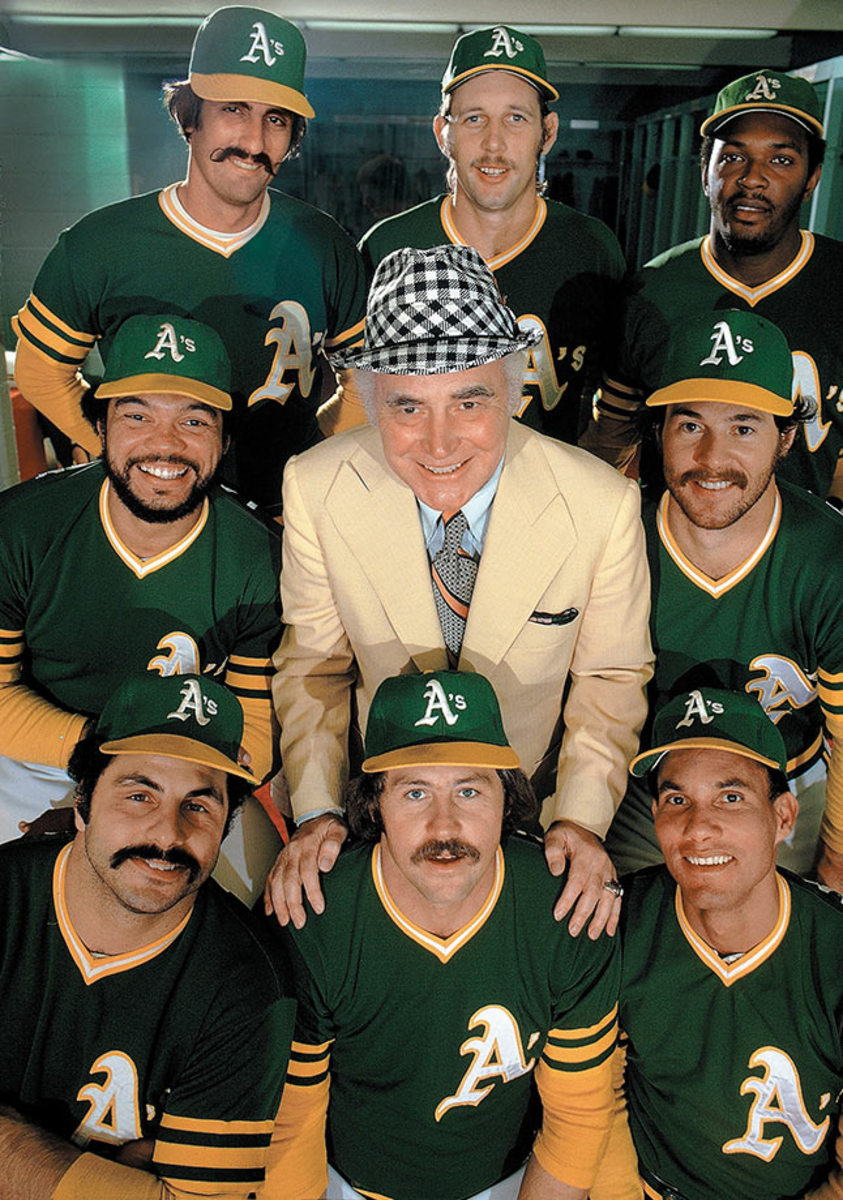
In Oakland for their seventh season, the A’s already had two World Series wins when they faced the Los Angeles Dodgers in the Fall Classic. Rollie Fingers and Catfish Hunter both had a save and a win in the 4-1 series victory. Before he became Mr. October, Reggie Jackson batted .286 with a homer.
1964 Toronto Maple Leafs
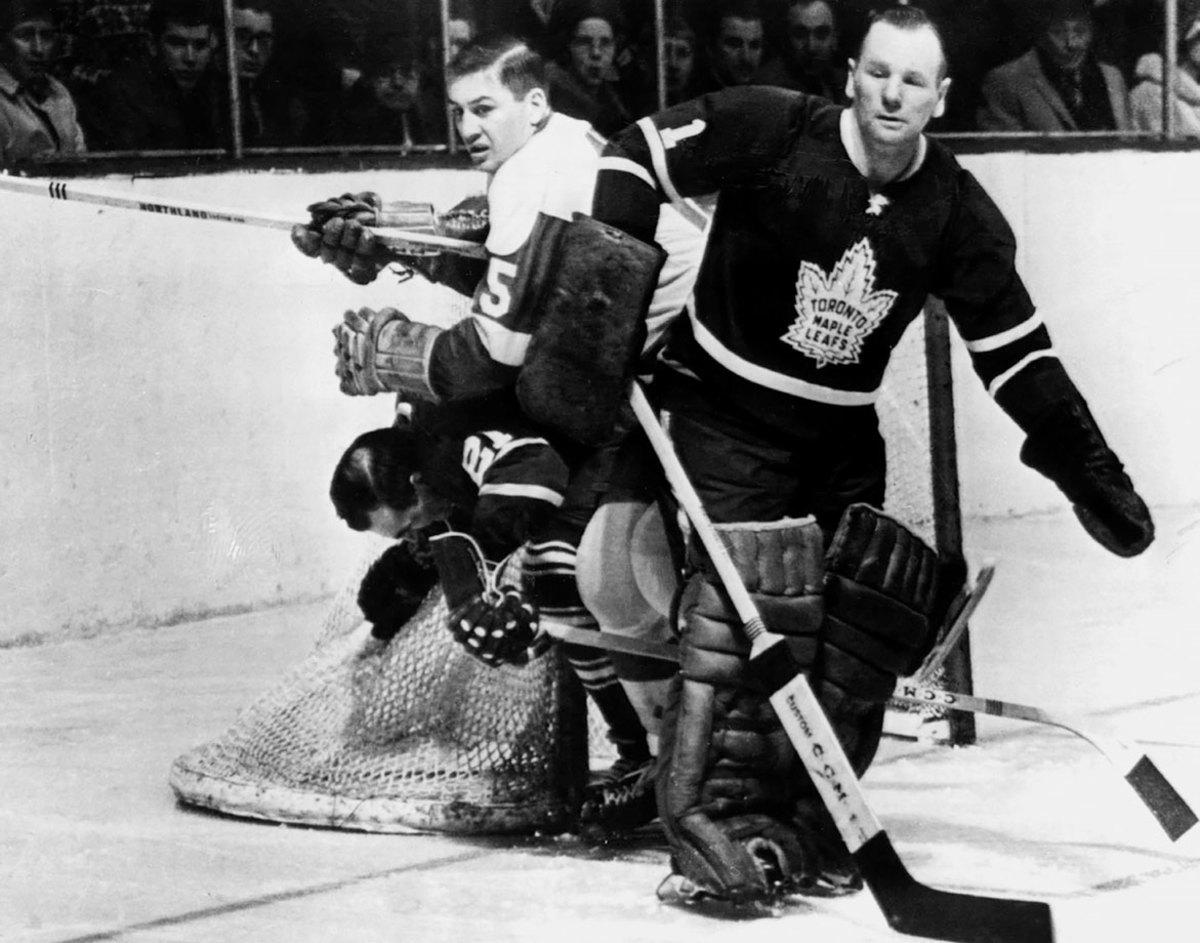
Three-peating required winning two series that went the distance. After downing Montreal, the Leafs met Detroit in a Cup Final rematch. Defenseman Bob Baun became a legend by scoring in overtime of Game 6 while playing on an ankle broken by a Gordie Howe slap shot in the third period. Baun, who’d been stretchered off before returning, also played in Game 7, won by Toronto with goalie Johnny Bower pitching a 4-0 shutout.
1961 Boston Celtics
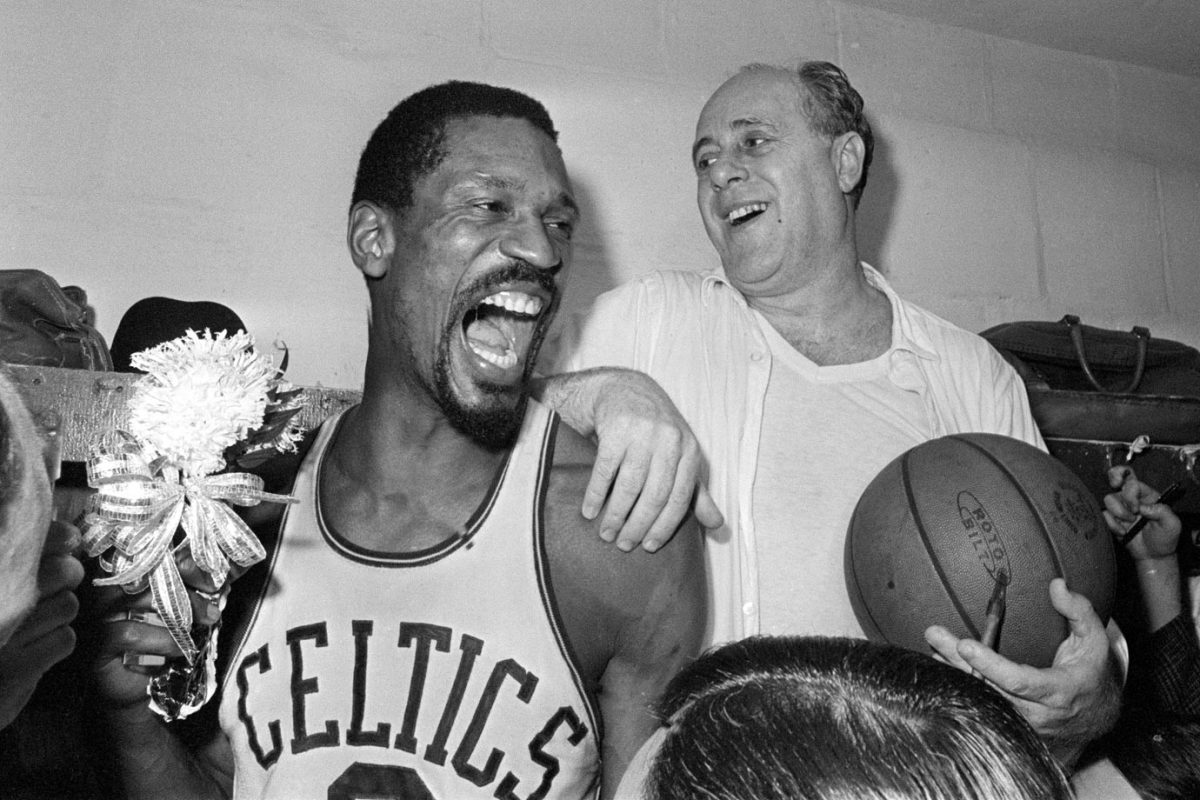
Featuring a starting five of Bill Russell, Tommy Heinsohn, Bob Cousy, K.C. Jones and Frank Ramsey, the Celtics lost only two playoff games en route to becoming the second NBA franchise to three-peat. Little did the Celtics know at the time, but they would go on to win five more consecutive titles, for a record-setting eight. The NBA probably will never see a dynasty of that magnitude again.
1958 Montreal Canadiens
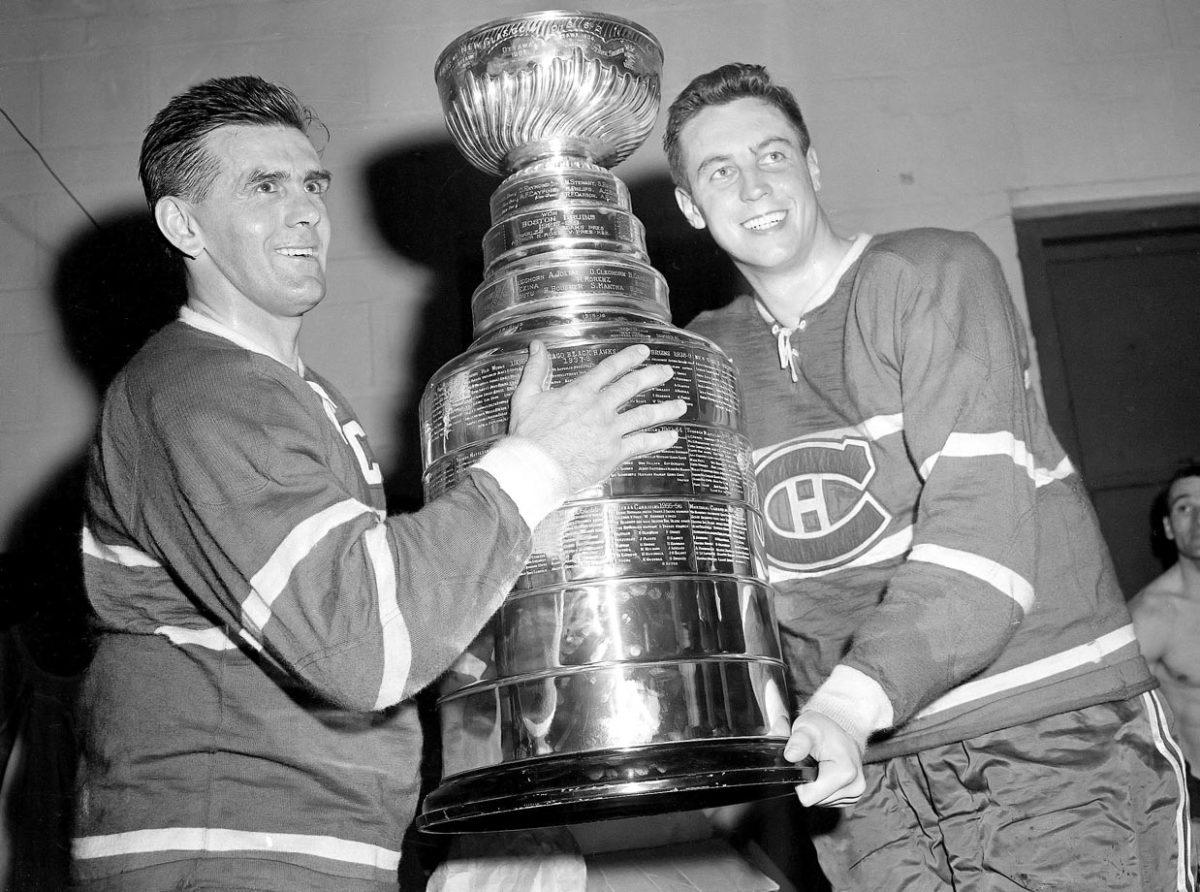
The Hall of Famer-laden Habs were an unstoppable train that swept Detroit and knocked off Boston in six games for the third of Montreal’s NHL record five straight Stanley Cups. Coached by Toe Blake, captained by Rocket Richard (playoff-best 11 goals) and boasting the stellar talents of Jean Beliveau, Henri Richard, Doug Harvey, Jacques Plante and more, this was an All-Star team for the ages.
1954 Minneapolis Lakers
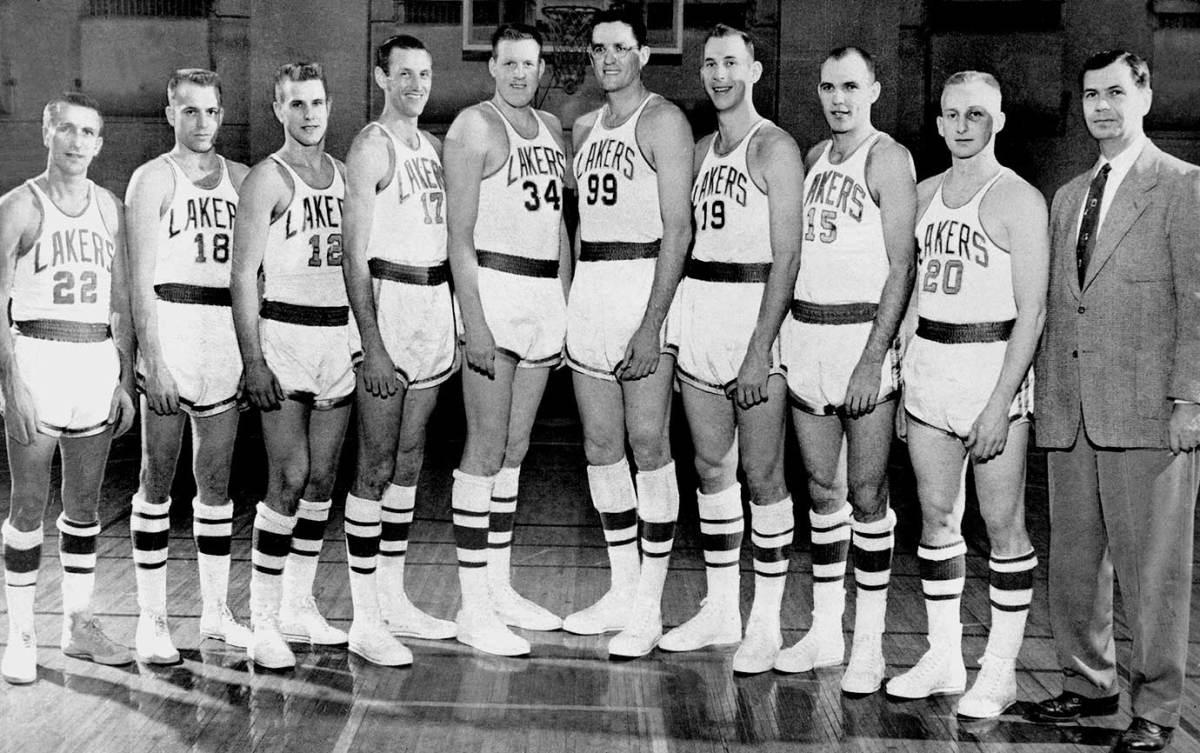
In George Mikan’s final season before retiring, the Lakers became the first NBA team to three-peat, outlasting Syracuse in a seven-game series for their fifth title in six years.
1951 New York Yankees
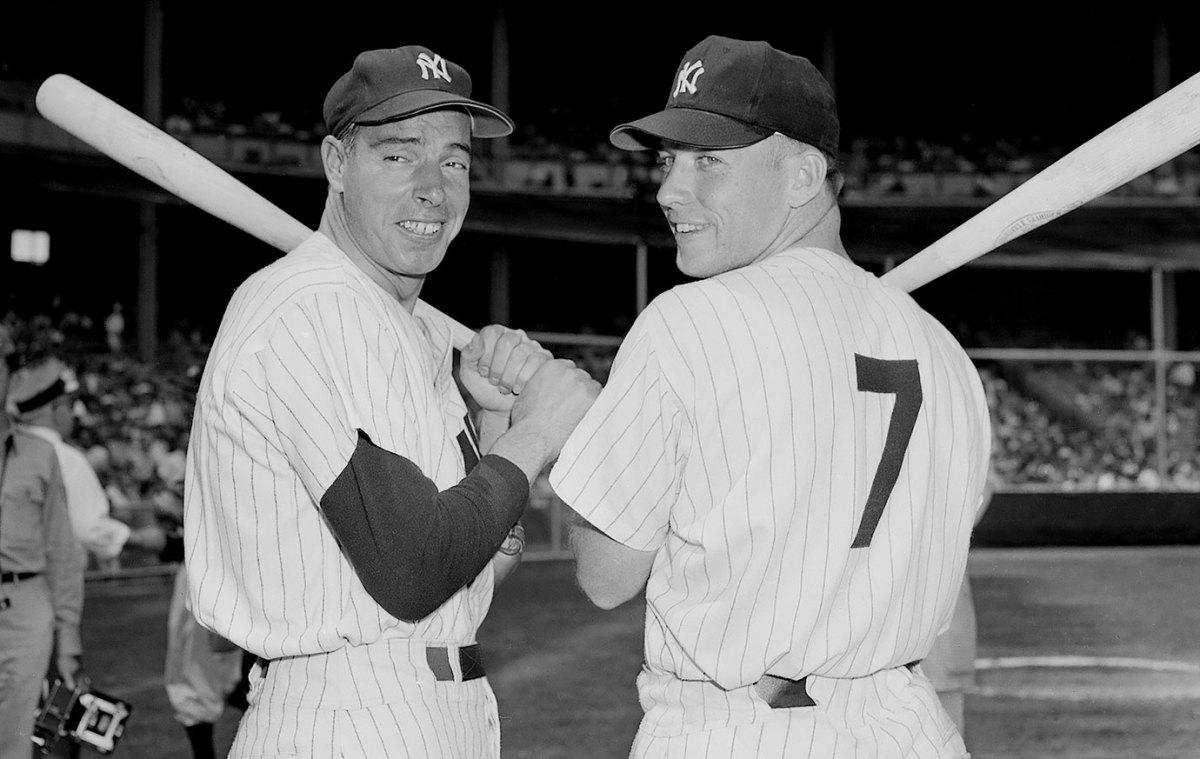
Marking the first time that Joe DiMaggio and Mickey Mantle shared a roster, the Yankees won 90 or more games for the fifth year in a row. Matching up against their crosstown rivals, the Giants, the Bombers rallied from a 2-1 deficit to win three straight games and take home the crown. The Yankees would win again in ’52 and ’53, cementing themselves as one of the best teams of all-time.
1949 Toronto Maple Leafs
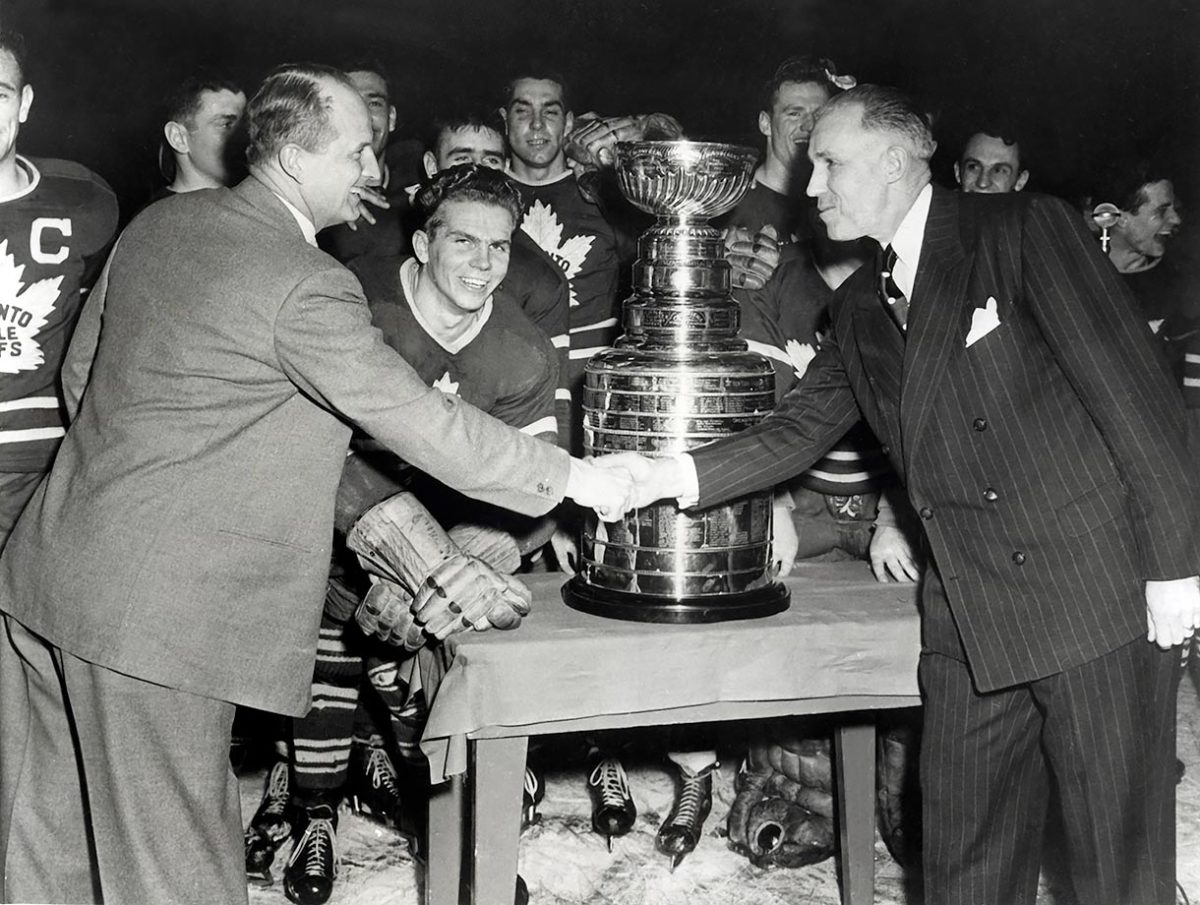
The first team to win three straight Stanley Cups since the formation of the NHL in 1917 did so despite having a losing record during the regular season (22-25-13). The playoffs were another story, as coach Hap Day’s Leafs rolled over Boston in five games to reach the final, where they swept Detroit, giving Toronto nine consecutive Cup final wins since its first clincher in 1947.
1938 New York Yankees
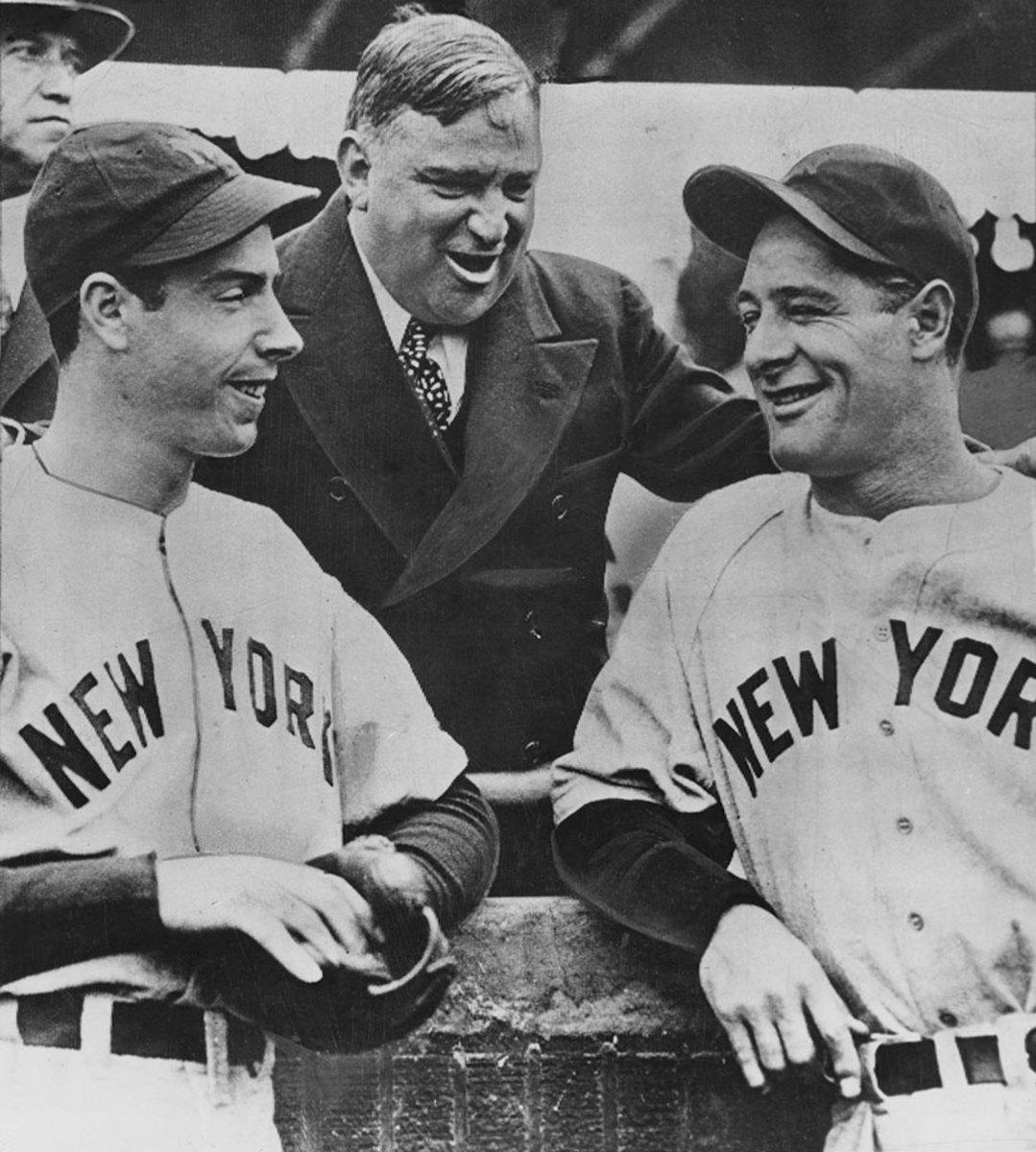
With a 23-year-old Joe DiMaggio patrolling center field and a 35-year-old Lou Gehrig in his final full season, the Yankees finished the season in first place in the league by 10 games over the Cubs. Facing Chicago in the World Series, the Yankees made quick work of the North-Siders, sweeping the series, never allowing the Cubs to score more than three runs in a game. The Yanks became the first team in MLB history to three-peat; they would make history again in 1939 when they won their fourth straight title.
